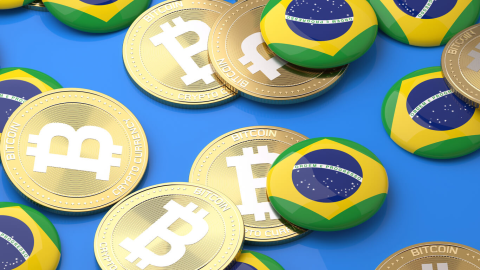Crypto Payments Ban in Sports Betting and Online Casino in Brazil
Brazil has given green signal to Sports Betting but payments can't be made using cryptocurrency. The government wants better control over the funding of betting operations and also withdrawals. In December 2023, Brazilian President Luiz Inacio Lula da Silva approved Bill 3626, known as the "Betting Bill of Law," setting the stage for Brazil's regulated sports betting and igaming market, slated to launch in January 2025. The bill ends 80 years of gambling prohibition and introduces a regulatory framework that addresses technical compliance, responsible gaming, and financial controls. Despite the $5.5 million licensing fee, over 100 operators have applied, eager to enter this lucrative market. However, the framework's ban on cash, cryptocurrency, and other payment methods has raised industry concerns. Brazil's regulatory efforts aim to control financial flows and combat money laundering, further sparking international interest.
The Legalization of Sports Betting in Brazil
In December 2023, President Lula approved Bill 3626, known as the "Betting Bill of Law," which will establish a regulatory framework for sports betting in Brazil. This bill marks the end of 80 years of gambling prohibition and aims to regulate the country's burgeoning igaming and sports betting market.
Timeline of Market Rollout
The regulated igaming and sports betting market is set to go live in January 2025, following a four-stage ordinance rollout and a 90-day application window. This process ensures all necessary compliance requirements are met before operators can legally offer betting services in Brazil.
Global Interest in Brazil's Market
Brazil's position as one of the world's top ten gambling jurisdictions has attracted global attention. The International Betting Integrity Association (IBIA) forecasts that the country's regulated market could generate $34 billion in sports betting turnover by 2028.
Operator Participation and License Fees
Despite a $5.5 million license fee and stringent regulatory requirements, more than 100 operators have applied for licenses to enter Brazil's sports betting market, demonstrating significant interest from international gaming companies.
Ban on Cash and Cryptocurrency Payments
One of the most contentious elements of Brazil's new framework is the prohibition of payments in cash, credit cards, cryptocurrency, cheques, or payment slips. Instead, operators are limited to electronic transfers between bettors and operators, a policy designed to enhance financial control and security.
Anti-Money Laundering and Compliance Measures
Brazil’s new regulations focus heavily on anti-money laundering (AML) and compliance policies. The Secretariat of Prizes and Betting (SPA) has released four detailed ordinances outlining requirements for technical compliance, responsible gaming, and prohibited payment methods.
Regulated Payout Processes
In cases where players win significant amounts, the Central Bank of Brazil allows institutions to process payments on behalf of the operator, ensuring winnings are distributed within a 120-minute window, thus streamlining the payout process.
Crypto's Popularity in Brazil
Despite the ban, cryptocurrencies have become a dominant payment method for many Brazilian bettors due to their peer-to-peer functionality and the lack of need for government or institutional oversight. Approximately 68% of Brazilians engage in gambling, predominantly through offshore platforms that accept cryptocurrencies.
Industry Reaction to Cryptocurrency Ban
EvenBet Gaming's CEO, Dmitry Starostenkov, views the ban on cryptocurrency as a signal of Brazil's commitment to tighter control over online betting. Starostenkov highlighted that cryptocurrency transactions, while traceable, lack the institutional oversight provided by fiat currency, which is crucial in curbing financial crimes such as money laundering.
EvenBet Gaming’s Position in the Latin American Market
EvenBet Gaming, a major player in the Latin American online poker scene, is poised to expand into Brazil’s igaming market. The company has already seen 37% growth in Q1 2024 revenue from operations in Colombia, Peru, and Argentina. However, the cryptocurrency ban may challenge its plans, as crypto-integrated poker rooms constitute a significant part of its offerings.
Challenges and Opportunities Ahead
With over 100 operators ready to enter the Brazilian market, challenges surrounding the ban on certain payment methods remain. However, the Brazilian government’s focus on ensuring safe and responsible gambling, while addressing fraud and money laundering, will likely provide a solid foundation for the market’s growth.
